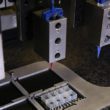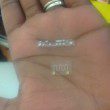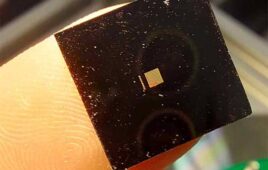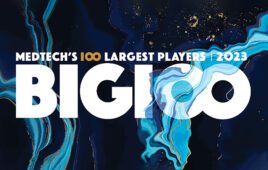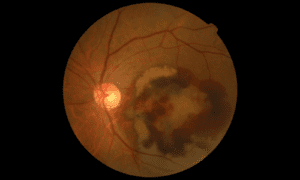
Fundus photograph of wet-type age-related macular degeneration. [Image from Tohoku University]
A research team from the Graduate Schools of Engineering and Medicine at Tohoku University cultured human retinal cells and vascular endothelial cells to replicate the outermost structure of the retina.
Retinal cells exposed to hypoglycemic and hypoxic conditions after maturity allowed endothelial cells to move to the side of retinal cells which would damage them. The whole process repeats neovascularization in age-related macular degeneration.
Age-related macular degeneration is an eye condition that is the leading cause of vision loss in people older than 50. It causes damage to the macula at the center of the retina, blurring the sharp, central vision needed for straight ahead activities like driving, according to the National Eye Institute.
Organ-on-a-chip technology is fairly new and ocular organs-on-a-chip have rarely been tested. These in vitro cell culture models eliminate the need for animal models while allowing researchers to study specific molecules-of-interest and recreate chronic and complex diseases.
The research team thinks that the recreation of age-related macular degeneration on a chip will help with disease modeling and will completely eliminate the need for animal models, which often comes into question because of the ethics of it.
[Want to stay more on top of MDO content? Subscribe to our weekly e-newsletter.]


